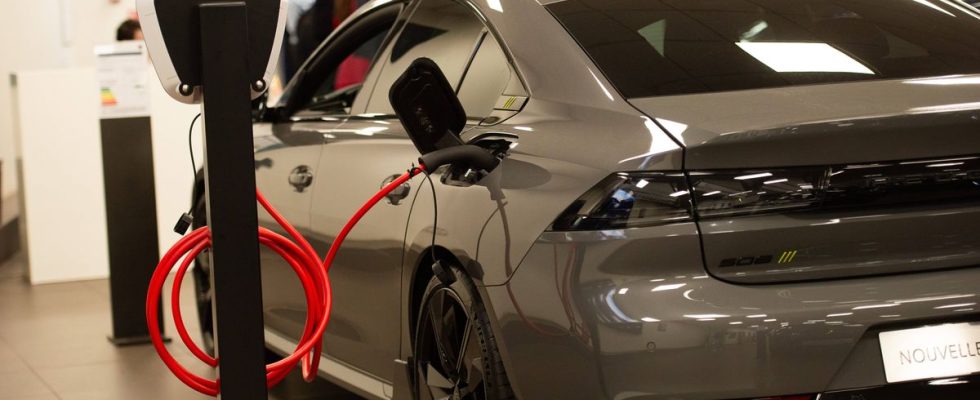A “good year”: in 2023, the French automobile market increased by 16.07% and saw the entry into circulation of a “record” number of electric and plug-in hybrid cars, but 2024 promises to be more complicated.
In total, 1,774,729 new passenger cars were put into circulation last year, according to figures published Monday by the Automobile Platform (PFA), which represents manufacturers and equipment manufacturers. Registrations mark the delivery of vehicles ordered several weeks or months previously.
“It’s not a party either”
“We have managed to sell the vehicles ordered by customers, the crucial problem of the lack of electronic components is disappearing,” says François Roudier, communications manager for the PFA, to AFP, who speaks of a “good year “.
“We’re having a positive year but it’s not a party either, 2022 was ultra-complicated with big problems at the industrial level,” tempers Grégory Pelletier, editorial director of L’Argus.
However, 2024 appears “much more problematic”, because “new orders are rather down”, points out François Roudier. “We are in an economy of inflation, gasoline and vehicles are expensive, it is not favorable to the automobile, and it is complicated to choose between gasoline, hybrid, electric,” agrees Grégory Pelletier.
Electrification on the way
The market also once again remained below the symbolic threshold of two million registered vehicles, usually reached before the Covid-19 pandemic.
“We are entering a volume of registrations which will be structurally lower”, estimates François Roudier: sales of entry-level cars have fallen since the pandemic, while “we are seeing a breakthrough in higher vehicles of the range”, more expensive but sold in smaller quantities.
Electric cars (17% of registrations) and plug-in hybrids (9%) together represented 26% of total registrations. “It’s a record, we’ve never had this, the movement towards electrification is underway,” according to François Roudier.
Hardened ecological bonus
Sales of all-electric vehicles increased by 47% compared to 2022, and those of plug-in hybrids, these vehicles which also plug into a socket or terminal and can drive in electric mode, increased by 34%. Tesla’s Model Y, the best-selling electric model of the year, was the eighth most sold car in the country.
Furthermore, manufacturers are rushing to register cars before the tightening of the ecological bonus scheduled for March 15. The new criteria will notably take into account the carbon footprint of vehicle manufacturing. Only those produced in France and Europe will be eligible.
Two flagship electric models manufactured in China, the Tesla Model 3 and the Dacia Spring, as well as the main Chinese manufacturers such as BYD or MG (SAIC) will therefore be excluded.
The possible reduction in the ecological bonus for the purchase of an electric vehicle could also constitute a brake on electrification, as was the case in Germany or the United States, according to François Roudier. This could increase to 4,000 euros for the wealthiest 50% of French people, instead of 5,000 euros in 2023, according to a government source.
Renault in the Stellantis retro
Registrations of gasoline cars remained stable, representing more than a third of the fleet put into circulation, while diesel continued to decline: only one in ten new passenger cars registered in 2023 was diesel.
On the manufacturer side, if Stellantis (Peugeot, Citroën, Fiat, Opel, Jeep) remains at the top of sales with 27.4% market share, the group only progresses by 1.8% and sees Renault returning in its rearview mirror (24 .6% of the private car market, +18.3%), while Volkswagen completes the podium (13.9% market share, +25.2%).
The Renault Clio V is at the top of the cars put into circulation, ahead of the Peugeot 208, a new version of which is due to arrive in January. “Renault had difficulty delivering in previous years with parts shortages”, while “it is a bad year for Peugeot (which) increased its prices and did not meet its objectives” according to Grégory Pelletier.

